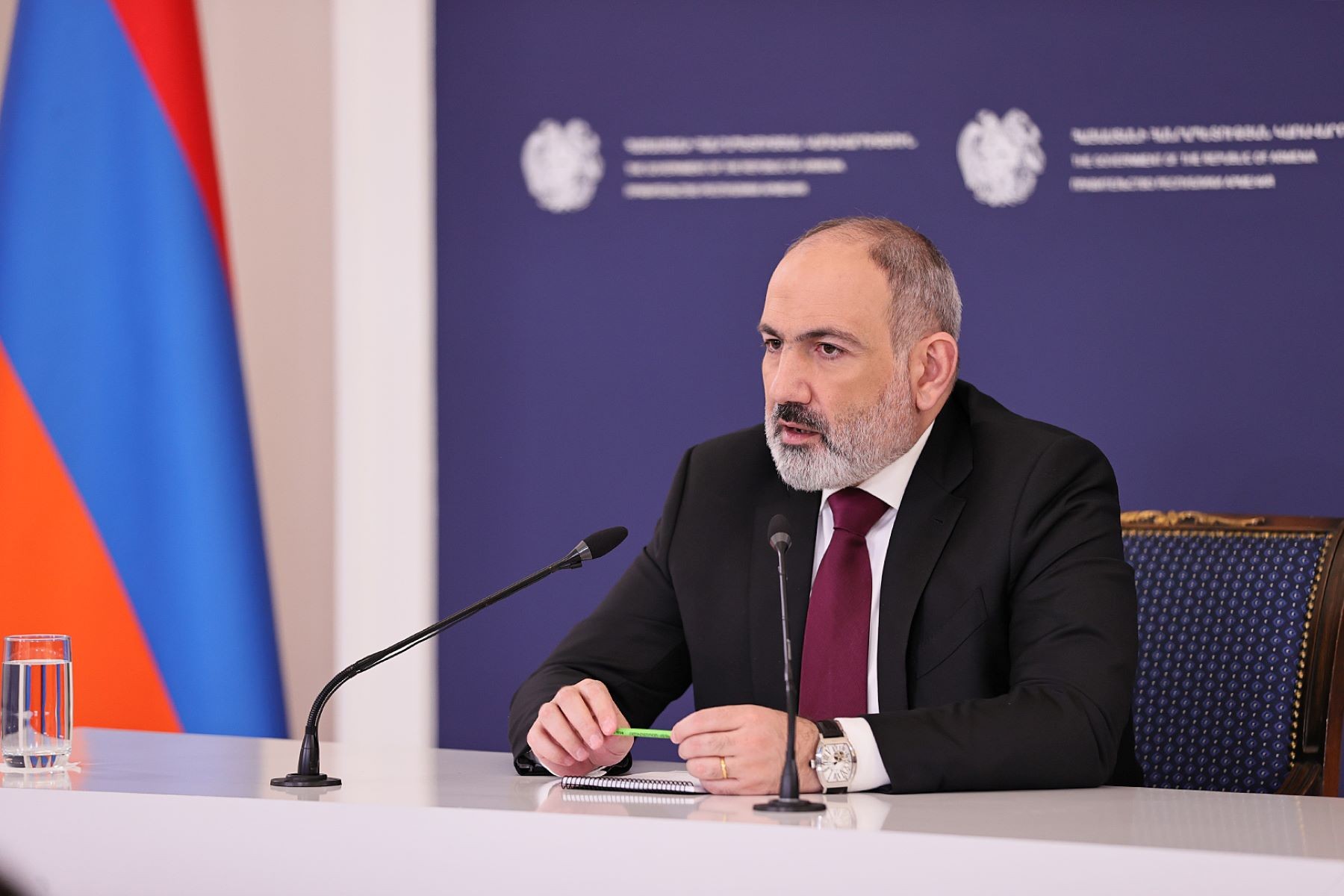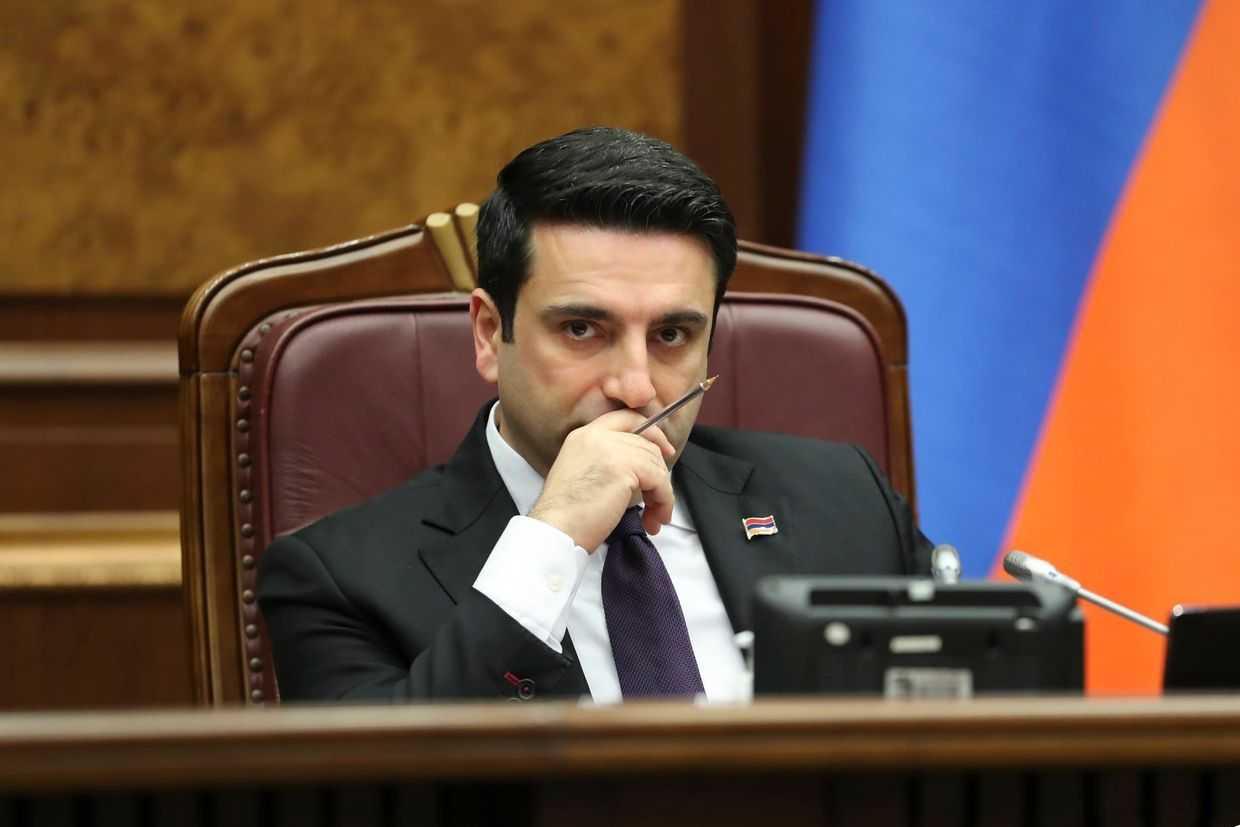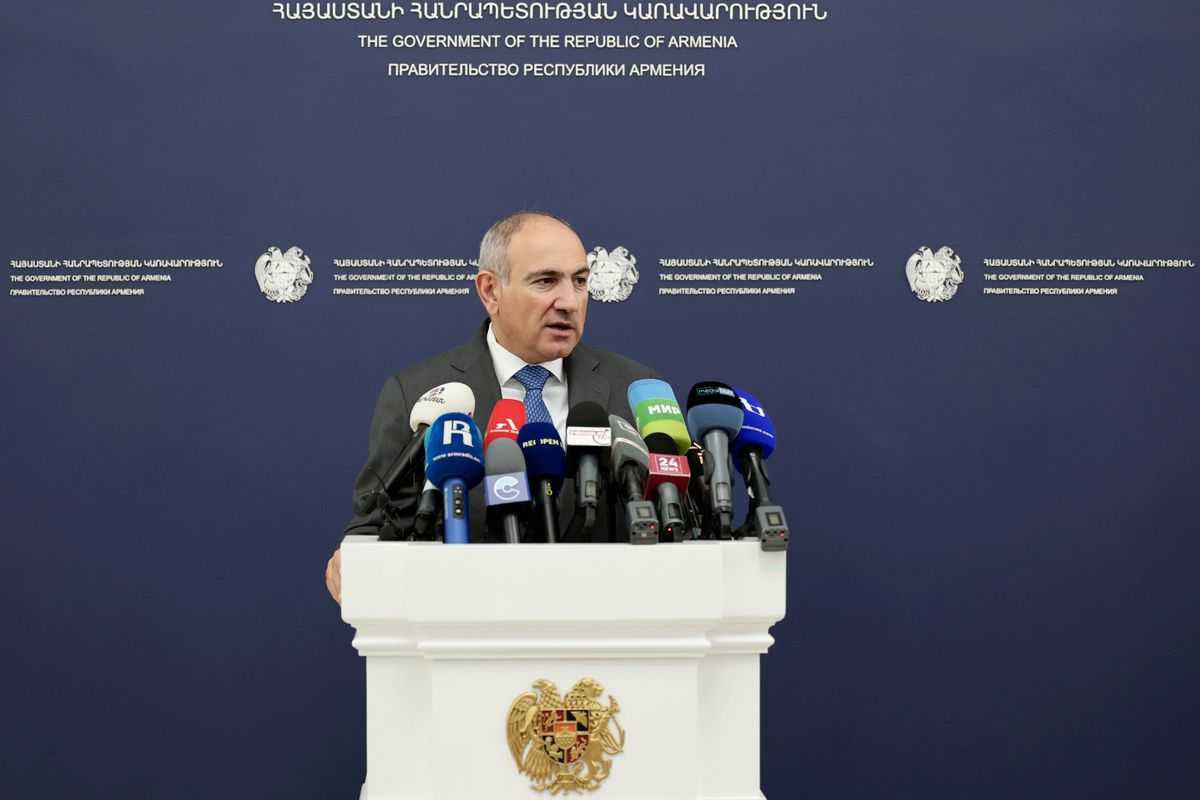
Armenia will not host the Collective Security Treaty Organisation’s (CSTO) annual peacekeeping training despite the Russian Defence Ministry announcing it would be held in the country.
In his first in-person press conference since the 2020 Second Nagorno-Karabakh War on Tuesday, Armenian Prime Minister Nikol Pashinyan criticised the Russian-led military pact and said the country would not host any CSTO exercises for ‘at least’ this year.
His statement directly contradicted the Russian Ministry of Defence, which on 1 January announced that the CSTO exercise would be held in Armenia.
The move is the latest example of a growing rift between Armenia and Russia.
Although Pashinyan said that the Armenian defence minister had informed the CSTO about Armenia’s decision, Kremlin spokesperson Dmitry Peskov claimed that Pashinyan’s statement was ‘new’ to them and that they would be in contact to ‘clarify the details of Armenia’s position’.
A CSTO spokesperson told Russian state news agency TASS that the organisation was considering proposals to hold the training in another member country.
Armenia previously refused to take part in CSTO exercises in the autumn of 2022, shortly after the two-day September war between Armenia and Azerbaijan. During that conflict, the CSTO did not respond to Armenia’s appeals for military assistance in light of attacks by Azerbaijan, despite the stipulations of the organisation’s founding treaty.
Pashinyan claimed on Tuesday that holding CSTO exercises in Armenia would be ‘inexpedient’ as it could be seen as a threat to the ‘Turkish-Azerbaijani tandem’ in the region.
Pashinyan also criticised the CSTO’s inaction regarding Armenia’s requests in 2022.
‘We demand that they specify the zone of CSTO responsibility. The absence of their response presents a fundamental problem for us’, Pashinyan said.
An ‘absurd’ narrative
Pashinyan also used the press conference to suggest that the presence of Russian military forces in Armenia endangered the country, and to question the efficacy of Russian peacekeepers in Nagorno-Karabakh.
He accused Azerbaijan of telling Western countries that Azerbaijani military aggression was required to ‘neutralise the threat’ of the Armenia-Russia alliance.
‘We bring our Russian partners’ attention to this fact, noting that their lack of response means that Russia’s military presence in Armenia not only does not guarantee Armenia’s security but, on the contrary, creates threats to Armenia’s security’.
Pashinyan called the narrative that he attributed to Azerbaijan ‘absurd’, but said that against the background of the war in Ukraine, it could ‘attract interest’.
Pashinyan went on to discuss the role of Russian peacekeepers in Nagorno-Karabakh, claiming that an Azerbaijani ‘state propaganda campaign’ had been working to discredit them. He added that while Armenia had expressed concern about the actions of Russian peacekeepers in Nagorno-Karabakh, it had not criticised them.
He went on to state that there were, however, questions that needed to be answered, including why Russian peacekeepers had not acted when ‘Azerbaijani forces entered the zone of responsibility of the peacekeepers’ in the village of Parukh (Farukh) in March 2022 or when Azerbaijanis captured ‘Armenian citizens’ from the village of Khtsaberd (Chaylaggala) in 2020.
Armenian public criticism of Russia has grown heated since the September war, and further escalated after the blockade of the Lachin corridor began on 12 December. State officials have repeatedly accused Russian peacekeepers of inaction and urged them to take steps to open the corridor.
[Read on OC Media: Nagorno-Karabakh introduces rationing and blackouts as blockade continues]
Pashinyan also addressed statements made in December by Armen Grigoryan, the secretary of Armenia’s National Security Council, in which he claimed that Russia was pressuring Armenia to join the country’s Union State with Belarus. The Prime Minister stated that Russia had not made any ‘official offer’ and that Grigoryan might have referred to messages that came from state officials through ‘unofficial contacts’.
However, Pashinyan said, the reality of the situation was ‘not as clear-cut as it seems’.








